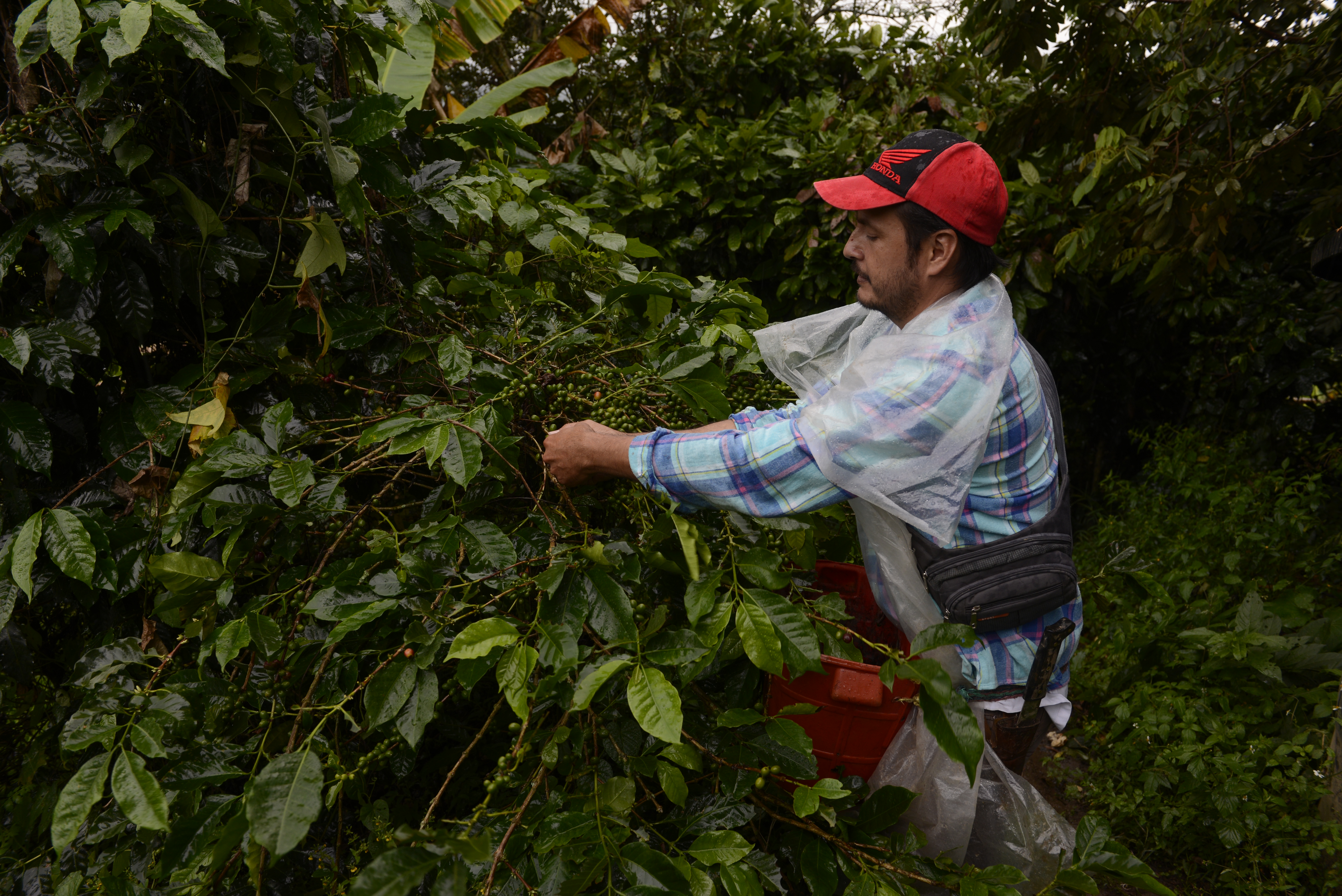Measures put in place to control the spread of the COVID-19 virus could lead to a massive disruption to food supplies. Following a Call to Action for World Leaders, the FOLU community is working to protect food supplies, farmers, others involved in the production of food and vulnerable communities, as well as support a sustainable recovery to grow back better. We are sharing a collection of stories from communities around the world who had put in place sustainable farming and food practices before the pandemic occurred. These are the kind of solutions that could now play a role in a resilient recovery.
Colombian farmers teach others to work with nature for healthy and sustainable food
The Kakataima community in Colombia knows how to work with nature when it comes to food. Farmers there have been practicing agroecology for the past 22 years, growing and producing an array of foods including organic coffee, plantains, and cacao.
Their home is in Quindío, a department in the western central region of the country known for its favourable climate and farming practices – and one in which the Food and Land Use Coalition (FOLU) Colombia actively works.
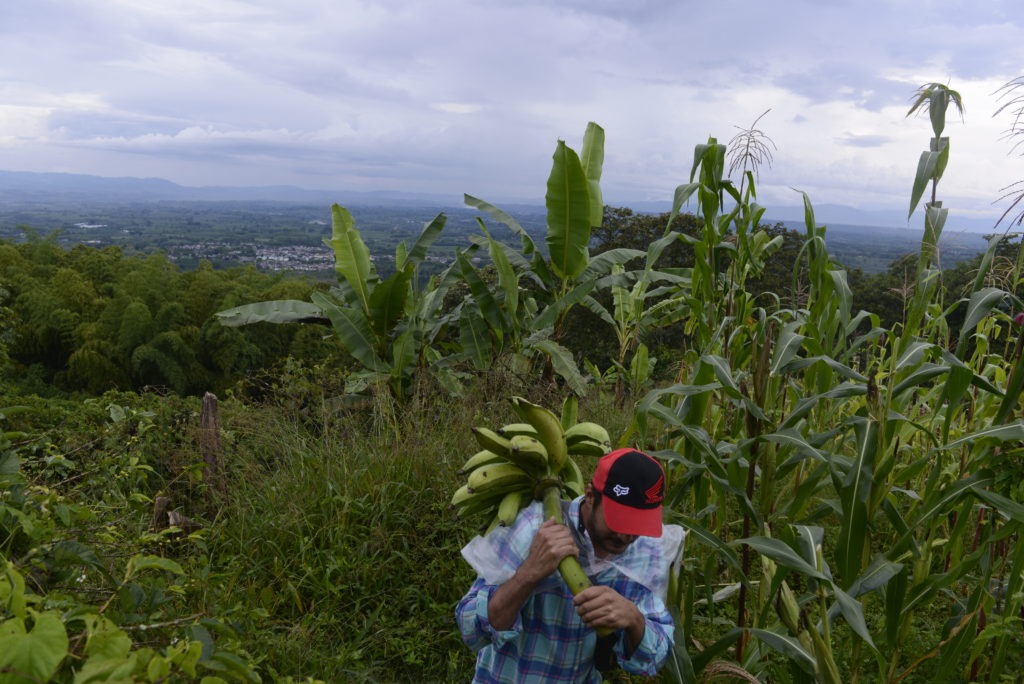
A volunteer is harvesting bananas, which grow on the agroecology farm in Quindío, Colombia / Chris de Bode for Panos Pictures/ Food and Land Use Coalition
Agroecology is a type of sustainable farming that incorporates ecological principles and aims to strike a balance between plants, animals, people, and their environment.
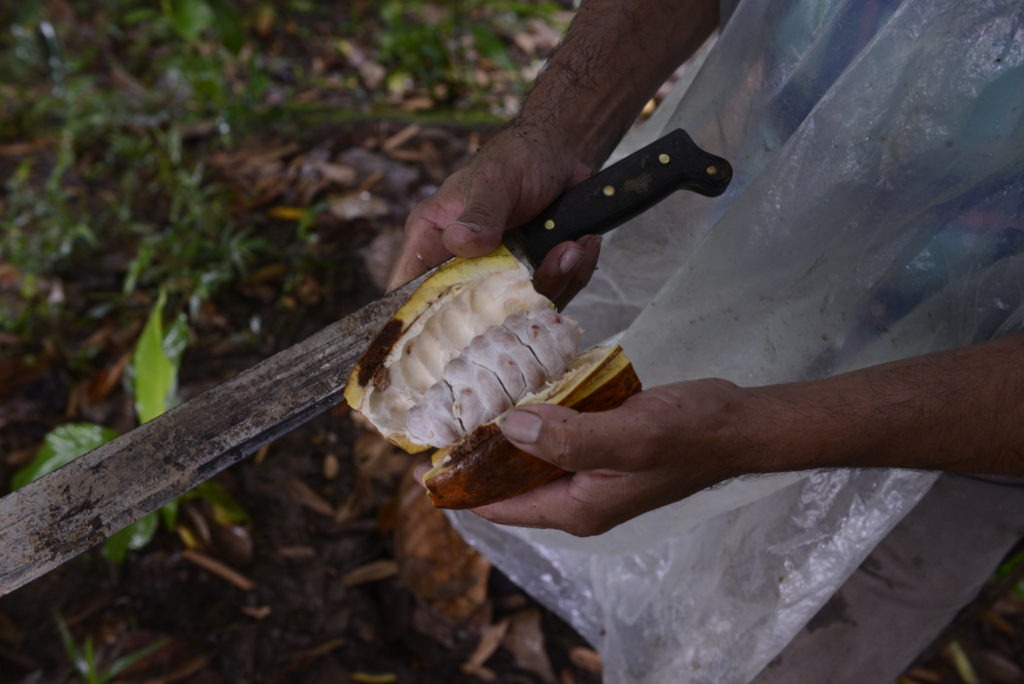
A volunteer is showing cacao beans, which are harvested at the agroecology farm in Quindío, Colombia / Chris de Bode for Panos Pictures/Food and Land Use Coalition
The Kakataima Agroecology School supports the community through a farm to fork approach, training a new generation of local farmers how to best work with their land using this alternative farming technique — and connecting curious consumers to their organic food markets.
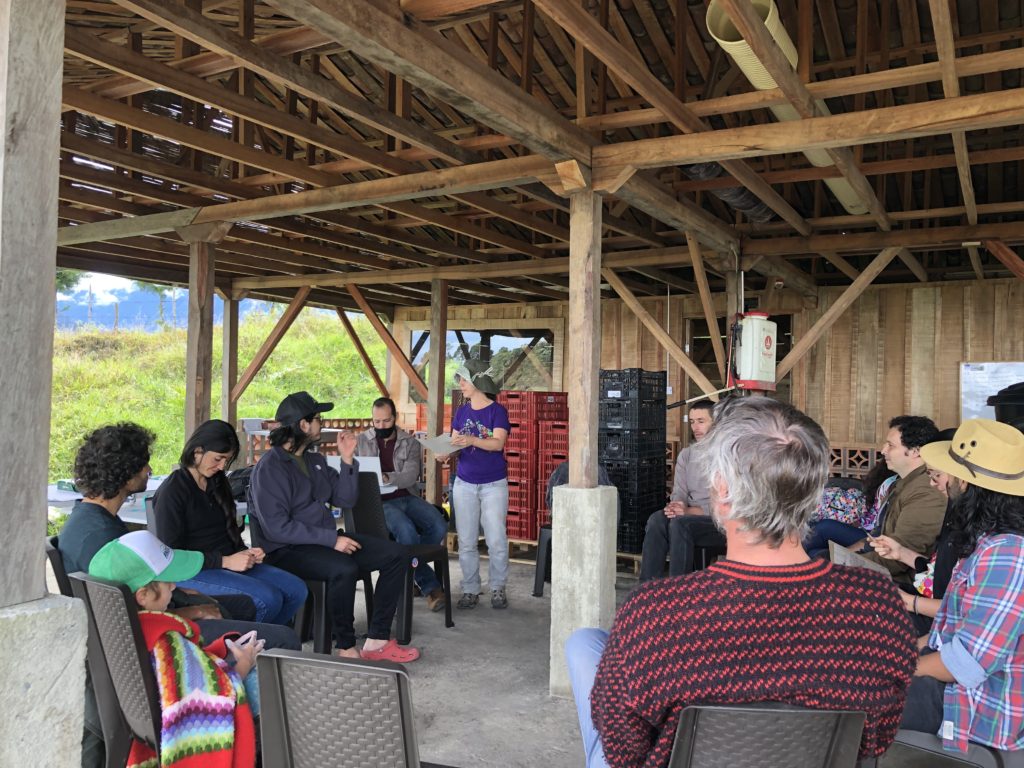
Kakataima Agroecology School, Quindio, Colombia/Chris de Bode for Panos Pictures/Food and Land Use Coalition
People from across the world come to volunteer at the farm and reconnect with the land. Daily activities range from collecting ripe crops in the field, to grinding flour in the kitchen – providing volunteers with the full farm to fork experience.
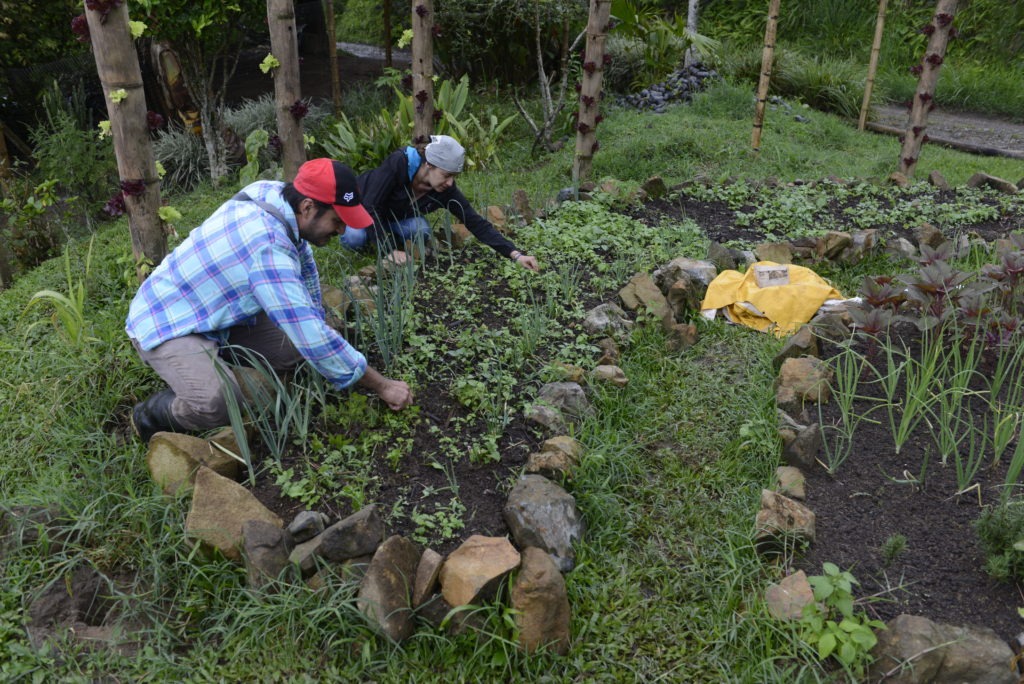
Volunteers are maintaining the vegetable garden in front of the agroecology farm in Quindío, Colombia/Chris de Bode for Panos Pictures/Food and Land Use Coalition
Among the activities, volunteers have been busy shaping a plot of land in the vegetable garden into a circle. The shape confuses and detracts insects. This protects crops and allows them to grow without the need for harsh chemicals that can harm the environment.
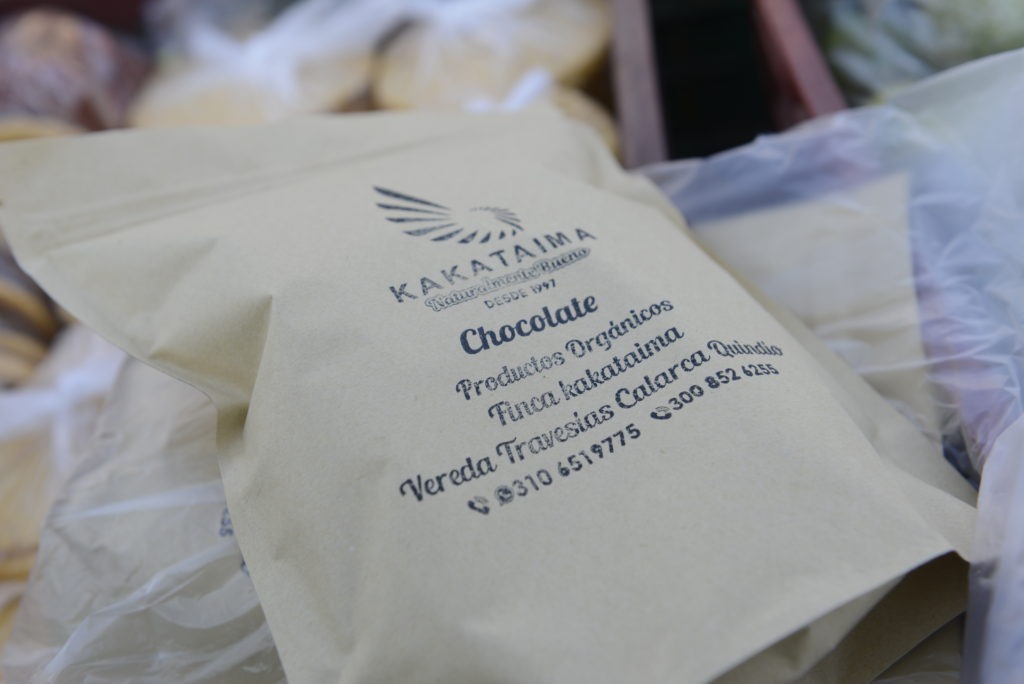
Chocolate made from home-grown cacao from the agroecology farm in Quindío, Colombia, is sold at the organic food market in the nearest city, Armenia/Chris de Bode for Panos Pictures/Food and Land Use Coalition
The community has also created its own brand KAKATAIMA and benefits from help by the Slow Food Movement to improve recipes and craft organic by-products. Slow Food is an international organisation with a mission to positively influence food systems through promoting local food cultures and traditions.
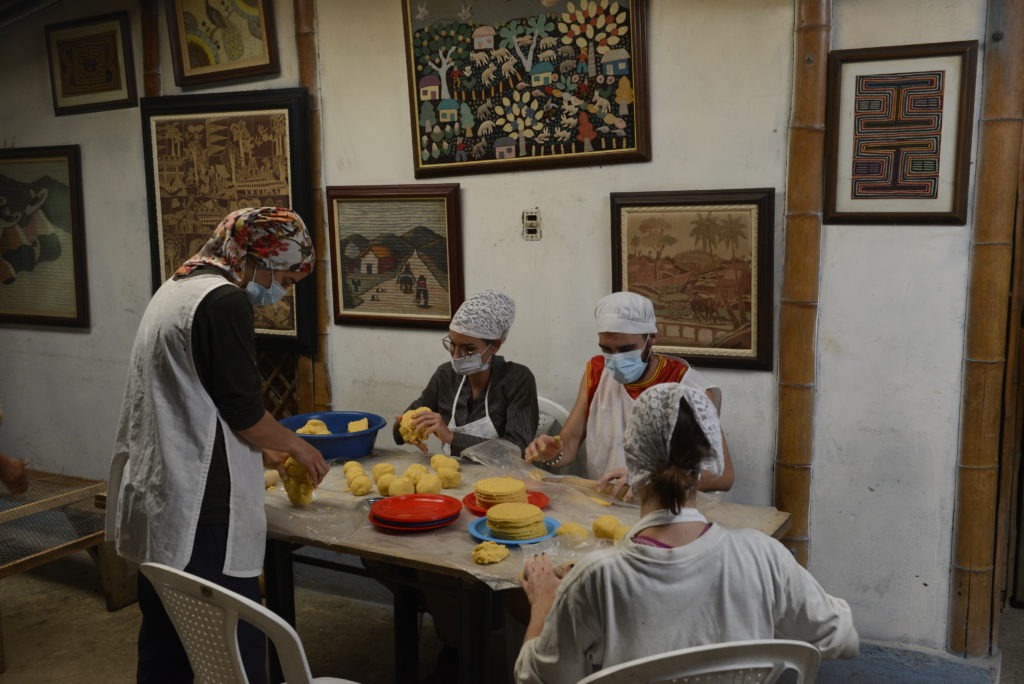
Volunteers making the famous Arepa pancake that will be sold at an organic market in the nearest city, Armenia/Chris de Bode for Panos Pictures/Food and Land Use Coalition
Using homegrown maize, volunteers make their own arepas, a Colombian style pancake that can be grilled, baked, fried, boiled, or steamed. A delicious and nutritious meal for any time of day!
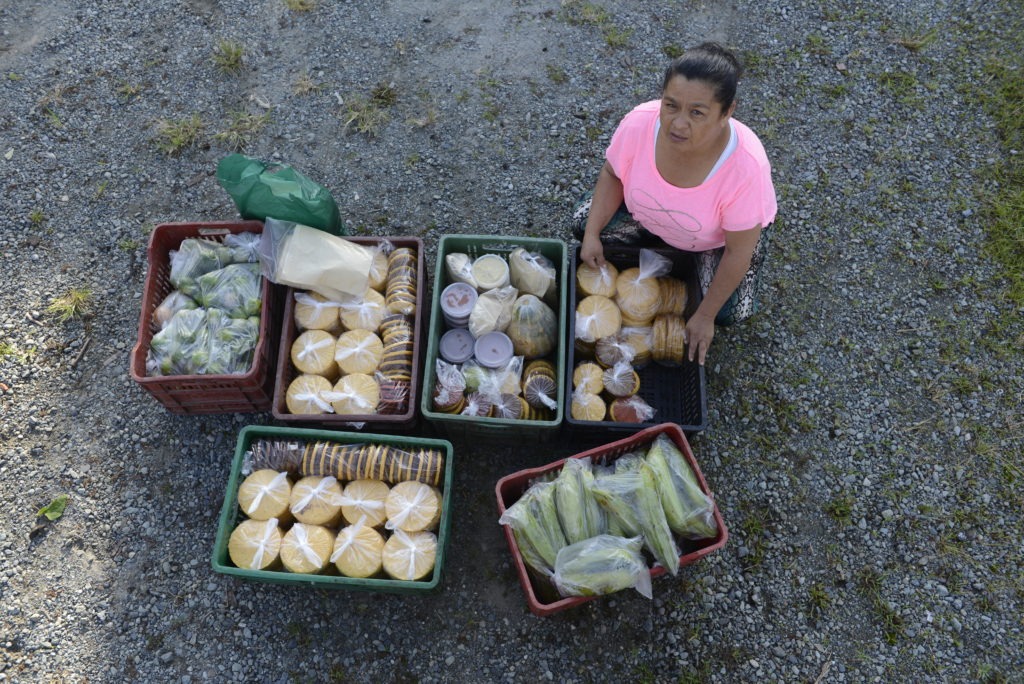
The owner of the agroecology farm in Quindío, Colombia, prepares her fresh goods to go sell at an organic food market in Armenia, the provincial capital close to the farm/Chris de Bode for Panos Pictures/Food and Land Use Coalition
Once crops have been harvested and food has been prepared, packed, and labelled, it is time to serve. The community cater for the local area through weekly home deliveries and markets.
Each week, the owner gathers fresh produce from the farm and kitchen and takes these to sell at the local food market in nearby Armenia.
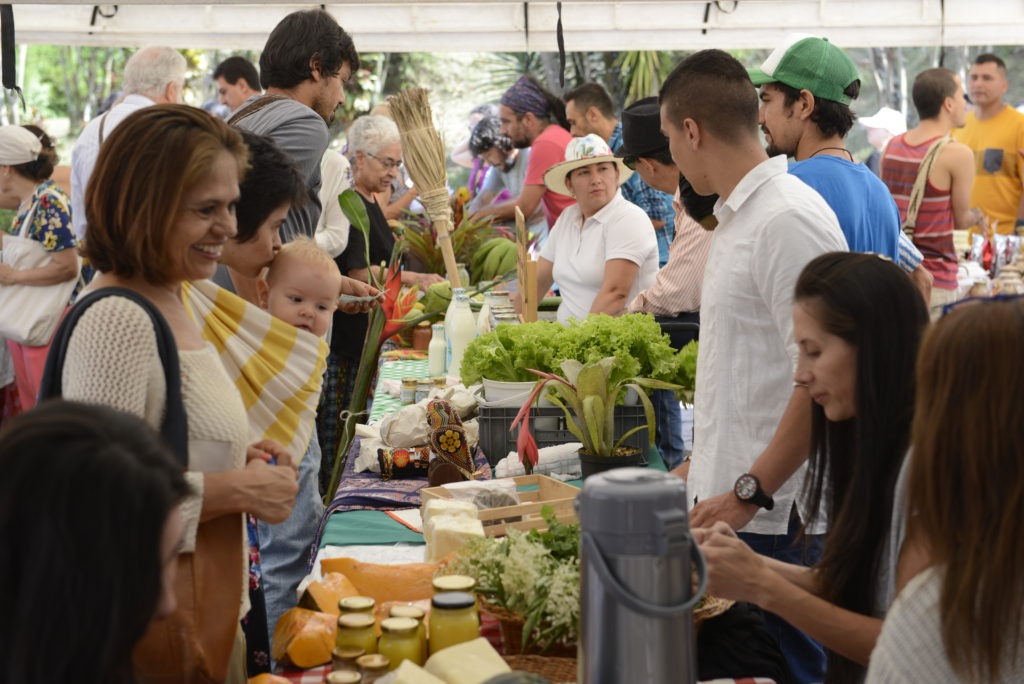
The organic food market in Armenia/Chris de Bode for Panos Pictures/Food and Land Use Coalition
As result of a tragic landslide disaster in 2018, the community has also begun reforesting the area through partnerships with other organisations to reduce climate risks and to improve the overall productivity of their farming system.
The FOLU Colombia programme in Quindío developed a FOLU Quindío roadmap to support initiatives such as the work led by the Kakataima community and a transition to a more regenerative and nourishing food system across the department.
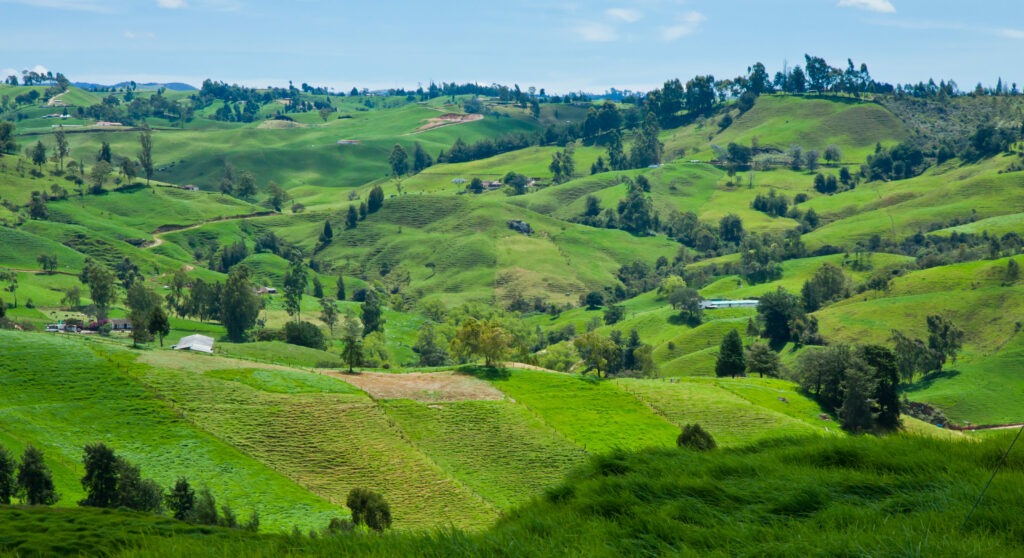
Entrerrios, Antioquia, Colombia/San Pedro/2014
Following the success in Quindío, FOLU Colombia is now building a similar roadmap in Antioquia to advance inspiring work in other parts of the country. This new roadmap will publish at the end of 2020.
For more information about FOLU Colombia, visit: https://folucolombia.org/


